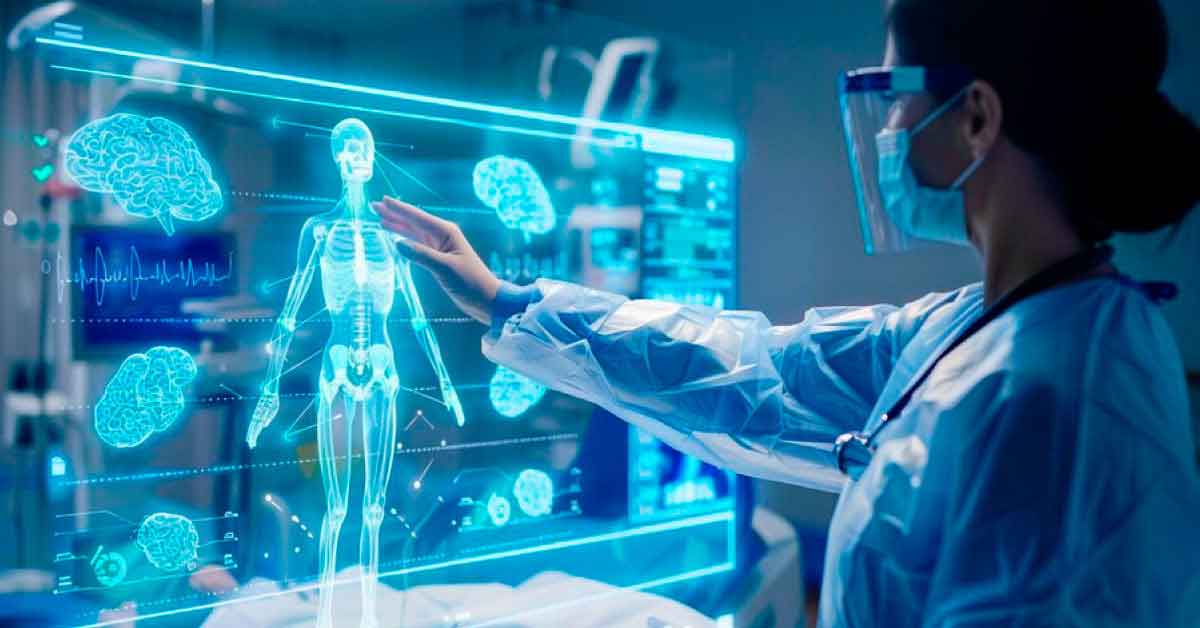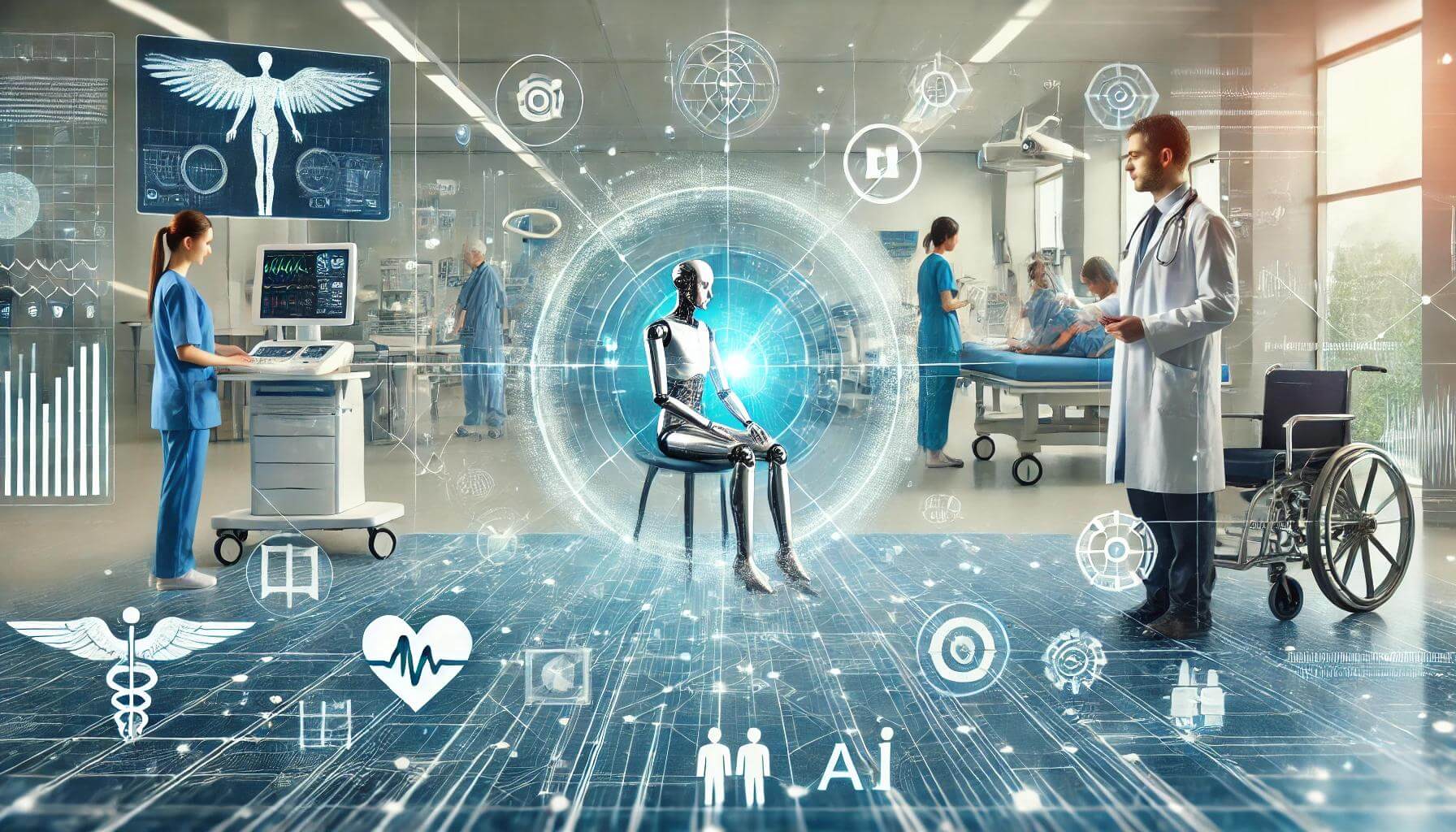The Best AI Uses in the Medical Field: A Deep Dive into Groundbreaking Innovations
Artificial intelligence is transforming the medical field by enhancing diagnostic precision, personalizing treatments, and improving patient care. This dynamic field, encompassing areas like diagnostics, patient monitoring, and surgical robotics, is fueling faster, more effective healthcare solutions. Here’s an in-depth exploration of the most remarkable uses of AI in the medical field today.
Early Diagnosis and Predictive Analysis
Timely and accurate diagnoses are crucial for patient outcomes. AI plays a vital role in analyzing patient data, identifying patterns, and predicting diseases earlier than traditional methods.
1. Cancer Detection: AI-powered imaging systems are now capable of detecting cancer at its earliest stages, often months before human doctors can. Machine learning algorithms analyze X-rays, MRIs, and CT scans, identifying abnormal growths and potential malignancies. For instance, some leading hospitals use AI to detect breast and lung cancer, offering hope for early intervention and higher survival rates.
2. Predictive Analysis for Chronic Conditions: Chronic diseases such as diabetes, heart disease, and Alzheimer’s impact millions. AI algorithms analyze patient history, genetics, and lifestyle factors to identify those at risk. By proactively monitoring at-risk individuals, healthcare providers can offer personalized care and significantly reduce emergency cases.
3. Infectious Disease Management: Post-COVID-19, AI’s role in managing infectious diseases has become more pronounced. For example, AI tools track disease spread, monitor mutations, and alert medical personnel about potential outbreaks, enabling swift, preventive action.
“We use advanced AI-driven imaging in our radiology department to detect abnormalities quicker and more accurately. It has revolutionized our diagnostic capabilities!” – Dr. Sarah James, Head Radiologist, NewYork-Presbyterian Hospital.
Personalized Treatment Plans
Every patient is unique, and so should be their treatment. AI allows for highly customized treatment plans, tailored to an individual’s specific medical history and needs.
1. Genomic Medicine: Leveraging genetic information, AI algorithms can predict how patients will respond to specific treatments. Companies like Tempus and IBM Watson Health are leading the way, creating platforms that analyze patients’ genes and predict the best medication for conditions like cancer and cystic fibrosis.
2. Medication and Dosage Customization: AI-driven systems, like those implemented by the Mayo Clinic, are now able to recommend optimal medication doses by assessing patient weight, age, and genetic predispositions. This approach helps avoid adverse drug reactions, especially in individuals with complex medical histories.
3. Real-Time Adjustments for Chronic Pain: AI assists in pain management, analyzing data from wearable devices. These insights allow doctors to adjust pain treatments in real-time, helping improve patient comfort and quality of life.

Surgical Assistance and Robotics
With advancements in AI, robots are now assisting surgeons in the operating room, reducing human error and enhancing precision.
1. Robot-Assisted Surgery: Hospitals like the Cleveland Clinic employ robotic systems such as the da Vinci Surgical System. These systems assist surgeons during complex procedures, providing greater accuracy, fewer complications, and faster recovery times.
2. Augmented Reality for Training: AI-driven AR systems simulate surgeries for medical students and trainee surgeons, providing hands-on experience without risk to real patients. This innovation is used in major medical centers, including Johns Hopkins Hospital, helping improve the skills of new surgeons before they enter the operating room.
3. Post-Operative Monitoring: AI also plays a role in post-surgery recovery, monitoring patients’ vital signs and alerting staff to any complications. This monitoring helps ensure that patients get immediate attention if issues arise, reducing readmissions.
Enhanced Patient Monitoring and Care
AI-driven devices are revolutionizing patient care by continuously monitoring patients and alerting healthcare professionals to potential issues before they become severe.
1. Wearable Devices: Smartwatches, like those by Apple and Fitbit, monitor heart rate, oxygen levels, and even ECGs, helping patients with heart conditions. Hospitals integrate this data into patient profiles, providing physicians with up-to-date health metrics.
2. Remote Patient Monitoring (RPM): For patients recovering at home, AI-based RPM systems like Current Health allow clinicians to monitor patients remotely. These systems notify doctors if patients experience sudden health changes, enabling faster responses and better outcomes.
3. Assisted Living and Elder Care: AI technologies aid in elder care, monitoring movement, vitals, and even daily habits. By alerting caregivers to unusual behaviors or declines in health, AI allows elderly patients to live independently longer.
Mental Health Support
AI applications are making significant strides in mental health by offering new, accessible, and effective forms of support for mental health patients.
1. Chatbots for Therapy: Companies like Woebot and Wysa provide AI-driven chatbots that engage patients in cognitive behavioral therapy (CBT). Available 24/7, these chatbots allow users to access mental health support anytime, offering coping strategies and tools for stress and anxiety.
2. AI-Driven Monitoring for High-Risk Patients: AI systems analyze behavior patterns in patients with conditions such as depression, bipolar disorder, and schizophrenia. This monitoring identifies potential relapse indicators, alerting healthcare providers so they can intervene early.
3. Virtual Reality for PTSD Treatment: VR applications use AI to create immersive environments for PTSD patients, helping them confront and process trauma in controlled settings. Leading hospitals like UCLA have started incorporating this innovative therapy for veterans and trauma survivors.
“AI in mental health has helped me manage my anxiety. The app offers exercises that keep me calm and grounded.” – Patient Testimonial, Mayo Clinic
Top AI Medical Facilities in the USA
Some medical facilities lead the way in AI technology, providing cutting-edge healthcare for patients:
1. Mayo Clinic (Minnesota): Known for integrating AI into every area of patient care, Mayo Clinic is at the forefront of cancer research, genomic medicine, and RPM.
2. Johns Hopkins Hospital (Maryland): With a strong focus on AI-assisted surgery and AR training for medical students, Johns Hopkins is a leader in advanced surgical solutions.
3. Cleveland Clinic (Ohio): This facility uses AI in personalized medicine and robot-assisted surgeries, setting high standards for patient safety and recovery.
4. Massachusetts General Hospital (Boston): With a focus on AI for diagnostics and mental health support, Massachusetts General Hospital offers some of the most comprehensive AI-based services.
The Future of AI in the Medical Field
AI developments in 2024 and beyond promise even more robust healthcare solutions. Researchers are exploring applications in gene therapy, robotic nanotechnology, and personalized cancer vaccines. Furthermore, the FDA is working closely with tech companies to ensure the safety and efficacy of these solutions. As AI evolves, the potential to improve patient outcomes and reshape healthcare grows exponentially.
In conclusion, the future of AI in the medical field is bright. From early diagnosis to mental health support, AI-driven systems promise a healthcare transformation that benefits both providers and patients. As AI applications continue to advance, we can expect even more innovative uses of technology, redefining the way we approach patient care.
For patients and providers alike, AI is redefining the healthcare landscape. Payment options are available for many AI-driven treatments, allowing more patients to benefit from cutting-edge solutions without financial strain.
“Our AI-driven monitoring system has reduced hospital readmissions by 25% this year. It’s a game-changer in healthcare.” – Dr. Robert Davis, Cardiologist, Cleveland Clinic








